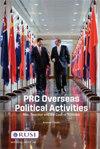IX. Canada and Security in Northern Europe
Q4 Social Sciences
引用次数: 0
Abstract
Canada’s post-war international policy has been deeply shaped by atlanticism – a multi-faceted connection to NATO. The Alliance has, of course, afforded Canada core protections and these considerations have driven much of Canada’s connection with NATO. However, Canada’s fondness for the Alliance goes beyond purely defensive concerns; other elements have sustained Canadian support for NATO even when hardsecurity concerns have waned and Canada’s views have diverged from those of its allies. Key among these softer ties, the Alliance also represents a ‘community of shared values’ created by transatlantic familial relations, cultural ties and trade with Europe – especially with the UK and France, Canada’s two foundational linguistic communities. Beyond this, NATO has offered Canada ‘a seat at the most important allied table in the world’ and a strong voice in the world’s foremost multilateral defence forum. In doing so, NATO has provided Canada with a European counterweight to US security interests, somewhat moderating the US’s otherwise dominant voice in Canadian defence and security discussions. Thus, while hard-security concerns drove Canada’s involvement in the creation of and continued participation in NATO during the Cold War, these other benefits helped sustain Canada’s strongIX、 加拿大与北欧安全
加拿大战后的国际政策深受大西洋主义的影响,大西洋主义是与北约的多方面联系。当然,北约为加拿大提供了核心保护,这些考虑在很大程度上推动了加拿大与北约的联系。然而,加拿大对联盟的喜爱超出了纯粹的防御考虑;即使在强硬的安全担忧减弱,加拿大的观点与盟友的观点有所分歧的情况下,其他因素也保持了加拿大对北约的支持。在这些较软的关系中,该联盟还代表了一个由跨大西洋家庭关系、文化关系和与欧洲的贸易创造的“共同价值观共同体”,尤其是与英国和法国这两个加拿大的基本语言共同体。除此之外,北约还为加拿大提供了“世界上最重要的盟国席位”,并在世界最重要的多边防务论坛上发出了强有力的声音。通过这样做,北约为加拿大提供了欧洲对美国安全利益的制衡,在一定程度上缓和了美国在加拿大国防和安全讨论中的主导地位。因此,尽管在冷战期间,出于安全方面的考虑,加拿大参与了北约的创建并继续参与北约,但这些其他好处有助于维持加拿大的强大实力
本文章由计算机程序翻译,如有差异,请以英文原文为准。
求助全文
约1分钟内获得全文
求助全文
来源期刊

Whitehall Papers
Social Sciences-Archeology
自引率
0.00%
发文量
12
期刊介绍:
The Whitehall Paper series provides in-depth studies of specific developments, issues or themes in the field of national and international defence and security. Published three times a year, Whitehall Papers reflect the highest standards of original research and analysis, and are invaluable background material for policy-makers and specialists alike.
 求助内容:
求助内容: 应助结果提醒方式:
应助结果提醒方式:


